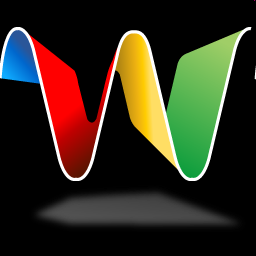| Wave bye-bye to Google Wave |
| Written by Ian Elliot |
| Thursday, 05 August 2010 |
|
Google Wave just didn't catch on. This is sad, especially if you spent time developing for it, but better to know that the surf's dead rather than to keep sloshing on.
Google has admitted that Wave just didn't catch on. Apart from allowing Google and other people (see the title of this news item) to create clever puns and headlines, people just didn't seem to get it.
Perhaps it was poor PR or just a that the technology had too much traditional baggage to dispose of. Explaining what Wave was all about was difficult - it is what email would look like if it was invented now. It combined instant messaging with email and collaborative working in way that was new. But it didn't spark the popular imagination and so didn't get off the starting block. As a result there just weren't very many "wavers" - as users of the service were often referred to. As a result Google is no longer developing the technology as announced by Urs Hölzle, Senior Vice President: But despite these wins, and numerous loyal fans, Wave has not seen the user adoption we would have liked. We don’t plan to continue developing Wave as a standalone product, but we will maintain the site at least through the end of the year and extend the technology for use in other Google projects. The central parts of the code, as well as the protocols that have driven many of Wave’s innovations, like drag-and-drop and character-by-character live typing, are already available as open source, so customers and partners can continue the innovation we began. In addition, we will work on tools so that users can easily “liberate” their content from Wave. While a lot of new reports have seemed to delight in the fact that the search engine giant has very publicly put a foot wrong I would, and my guess is that many programmers would agree, like to say thank you for having the courage to admit the failure. If you have been developing for Wave then its demise will not be a happy event.(Not to mention the books both published and underway.) On the other hand continuing to put in work when the future looks bleak is not a good alternative. Far too often software companies leave developers guessing about the future of a product - never ever wanting to say that it is dead. Microsoft is a prime case in point with no clear leadership on what is dead and gone we are left with the task of guessing which technologies are still usable - for example is VBA a current and future technology? So thanks Google. It can't have been easy to shut up shop and admit defeat. If it's any consolation a lot of people thought that Wave was a good idea.
Google intends to use the technology in other products so look out for "wavelets" turning up in Buzz, Gmail and so on. Relevant Reading
<ASIN:1430229829> <ASIN:0982592604> <ASIN:1448692520> <ASIN:0672333074> |
| Last Updated ( Monday, 11 April 2011 ) |

